Topic: Evolutionary Computational Design 2.0
Date: August 19 & 20, 2023
Time: 11:00 – 15:00 GMT
Format: Online on Zoom
Duration: 2 Sessions (8 Hours)
Course Fee: Free for Digital Members
Difficulty: Beginner – Intermediate
Language: English
Certificate: Yes
Organized By: PAACADEMY’s Original Content
Tutor: Ghazal Javidannia
Videos: Recordings will be available for all members afterward.
Introduction to the workshop:
Evolutionary Computation (EC) is a sub-field of artificial intelligence (AI) which uses the “Evolutionary Algorithm” (EAs) to solve problems that have too many variables for traditional algorithms. This method selects the best alternatives between various solutions based on problems’ criteria and constraints, known as “Optimization.” The engineering community (including architects and structural engineers) could benefit from this design method as a rapid and high-quality decision-making method and tool to increase the speed and quality of their design choice in the building design field.
After the successful first edition of the workshop, this time, participants will dive deep into how to use the EAs to study the effect of architectural design decisions on buildings’ structures’ performance and how to select optimum design alternatives among various design solutions. To achieve this goal, we use “Karamba3D” as a Finite Element (FE) analysis tool, which provides an accurate analysis of spatial trusses, frames, and shells in the early design stage, and, “Galapagos” as an optimization tool based on the genetic algorithm. They are both fully embedded in the parametric design environment of Grasshopper, a plugin for the 3D modeling tool Rhino. This makes combining parameterized geometric models, finite element calculations, and evolutionary optimization algorithms easy.
Scope of the Workshop:
Evolutionary Computational Design 2.0 is for architecture and structural designers and students interested in the simultaneous design of structure and architecture. All modeling and computational analysis will be done in the grasshopper/Rhino7. Having beginner to intermediate knowledge of Grasshopper is a must. Karamba3D will be used for modeling and analyzing the structure during sessions. No prior Karamba3D knowledge is required. The trial Karamba3D version is sufficient. The Evolutionary Optimization Algorithms will be explained from scratch, and Galapagos, the single objective optimization tool based on the genetic algorithm, will be introduced. Prior knowledge of optimization algorithms is an advantage but not necessary.
Methodology:
In this workshop, you’ll learn about using Karamba3D and Galapagos as Finite Element Analysis and Genetic Algorithm optimization tools to create non-standard structural forms in static equilibrium using a computer-aided design framework. The design workflow depends on implementing a series of operations (generation, evaluation, optimization, and regeneration) that allow the creation of multiple design alternatives and navigating in the architectural design space according to objective and subjective criteria defined by the designer.
Objectives:
Participants of this workshop will:
- Understand the main criteria and evaluation factors of a “FE analysis,”
- Learn how to model and analyze simple structures using “Karamba3D,”
- Understand the basic concepts and application of “Evolutionary Algorithms,”
- Learn how to use a “Genetic Algorithm” for optimization and design framework in the architectural design process. Learn how to use “Galapagos” to define a generative structure and architecture optimization workflow.
Program:
First Session: June 3rd
- Introduction to Karamba3D
- Setup a structural statical model
- Creating structural models and analysis scenario
- “Evolutionary Algorithms” and “Genetic Algorithms” are basic concepts
Second Session: June 4th
- Assignment 01: Canopy Design
- Structural performance optimization using Galapagos
Note: Participant can either design their own canopy or work on a simple algorithm prior prepared by the instructor. Note that while we are using the trial version of Karamba3D, the canopy elements must be restricted to 20 beams & 50 shells.
Software:
- Rhinoceros3D 7.0 (Required)
- Karamba3D (Required)
- Lunchbox (Required)
- Human (Recommended)
Important Notes:
- The workshop is free for Digital Members.
- After subscribing to the Digital Membership, you will need to add the workshop to your account by clicking “get the course” at this link.
- The ‘Evolutionary Computational Design 2.0‘ workshop by PAACADEMY will start on Saturday, August 19, 2023, at 11:00 GMT.
- Your Digital Membership must be valid on the event day.
- Total sessions: 2 sessions
- Daily Schedule: 11:00 – 15:00 GMT.
- The entire studio will be recorded, and videos will be available for participants.
- PAACADEMY will provide a certificate of attendance for students who deliver a final project.
- Please be informed that we won’t be able to provide any license, invitation, or educational account, for any of the software listed above. Having the software with a proper license and installing them on the computer is the responsibility of the attendees.
Instructor:
Ghazal Javidannia
Ghazal Javidannia has a Ph.D. from TMU University of Tehran, Iran. Her focus is on “Computational Design & Optimization using “Evolutionary Algorithms,” and her expertise is on “Generative and Interactive” architectural design based on buildings’ structural performance. She has published multiple papers in peer-review Journals and presented at conferences including eCAADe and SimAUD. She also has held multiple national and international workshops in architecture and structure Simulants Design” using “Evolutionary Algorithms”. Now, she collaborates with major design and building companies on building performance simulation and analysis in the early design stages.
Topic: Evolutionary Computational Design 2.0
Date: August 19 & 20, 2023
Time: 11:00 – 15:00 GMT
Format: Online on Zoom
Duration: 2 Sessions (8 Hours)
Course Fee: Free for Digital Members
Difficulty: Beginner – Intermediate
Language: English
Certificate: Yes
Organized By: PAACADEMY’s Original Content
Tutor: Ghazal Javidannia
Videos: Recordings will be available for all members afterward.
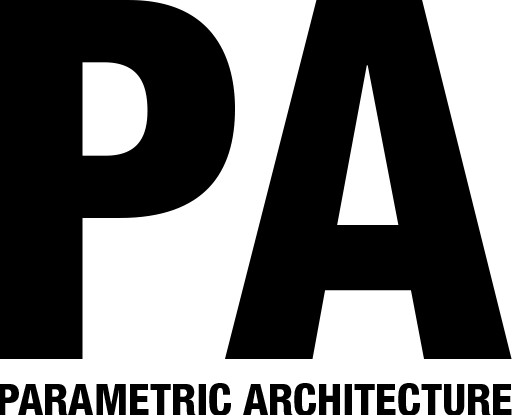





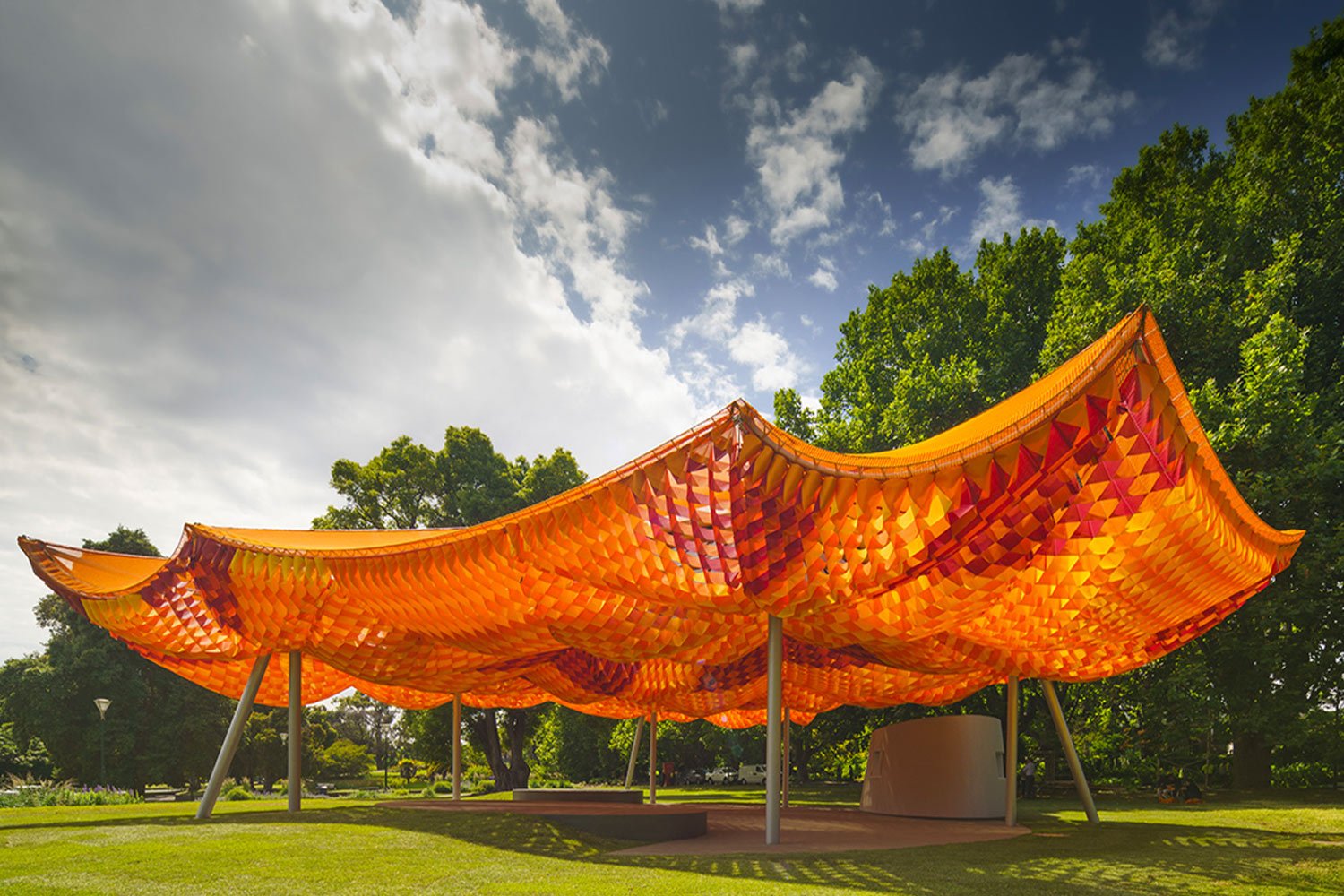


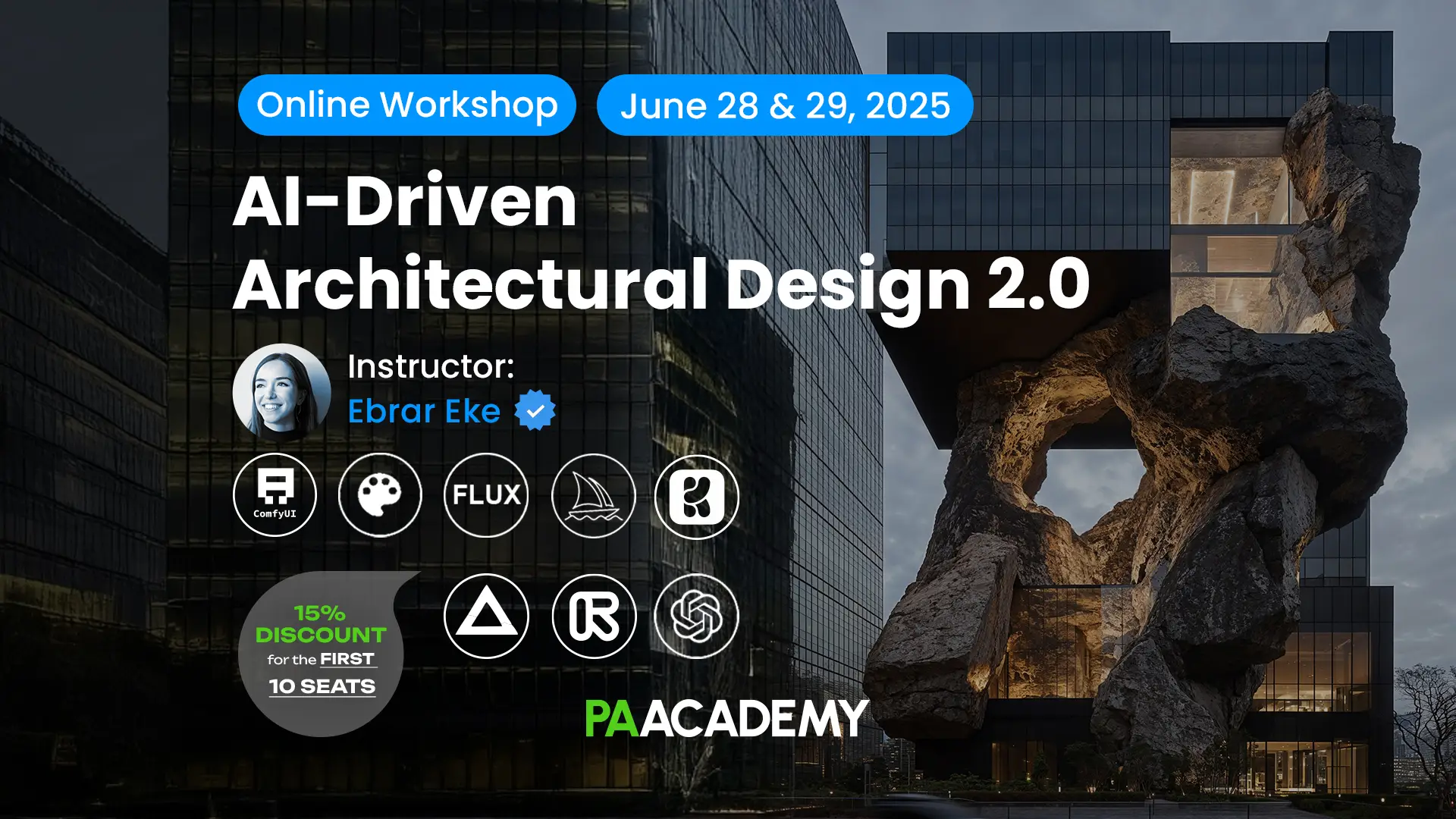
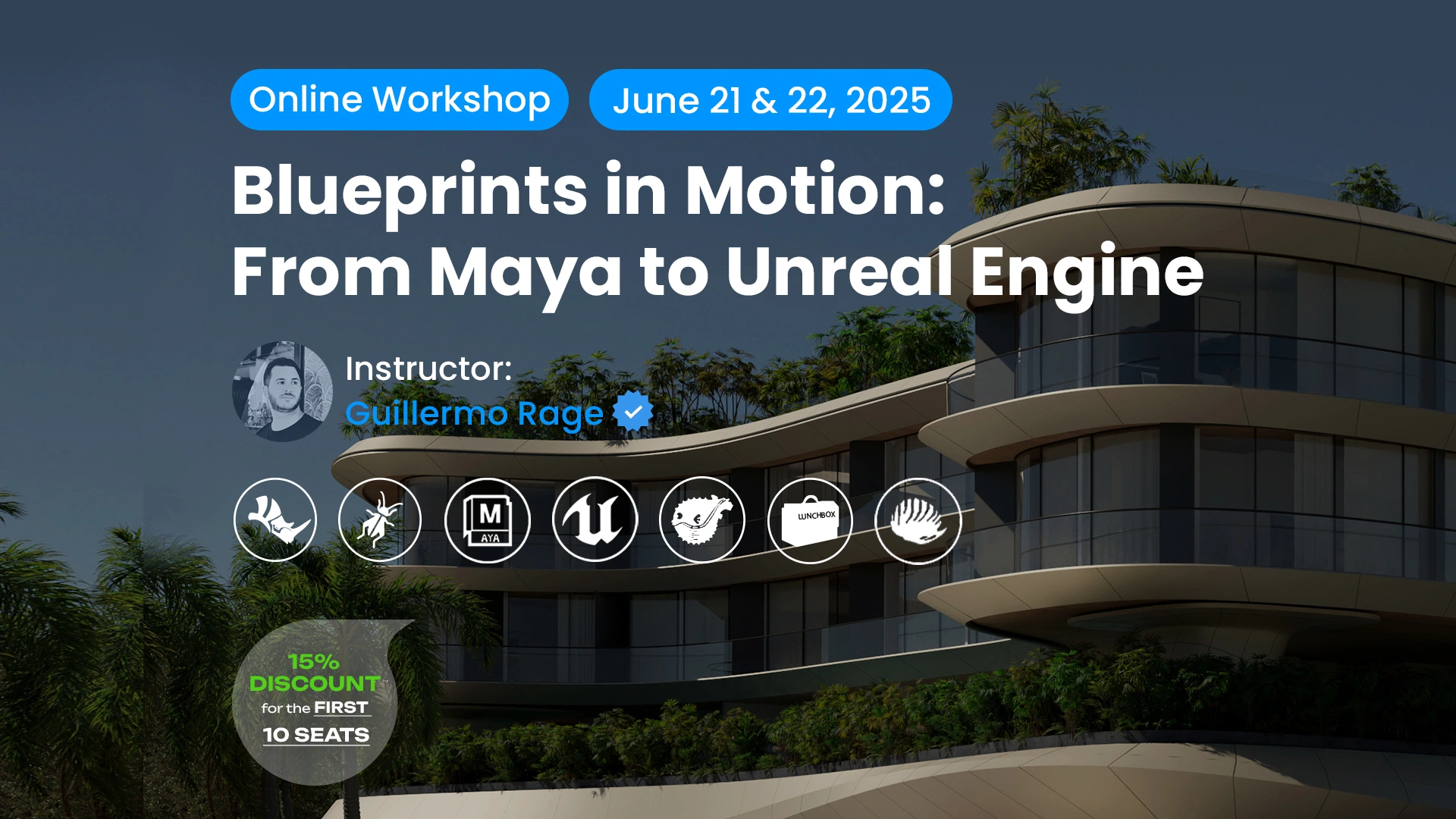
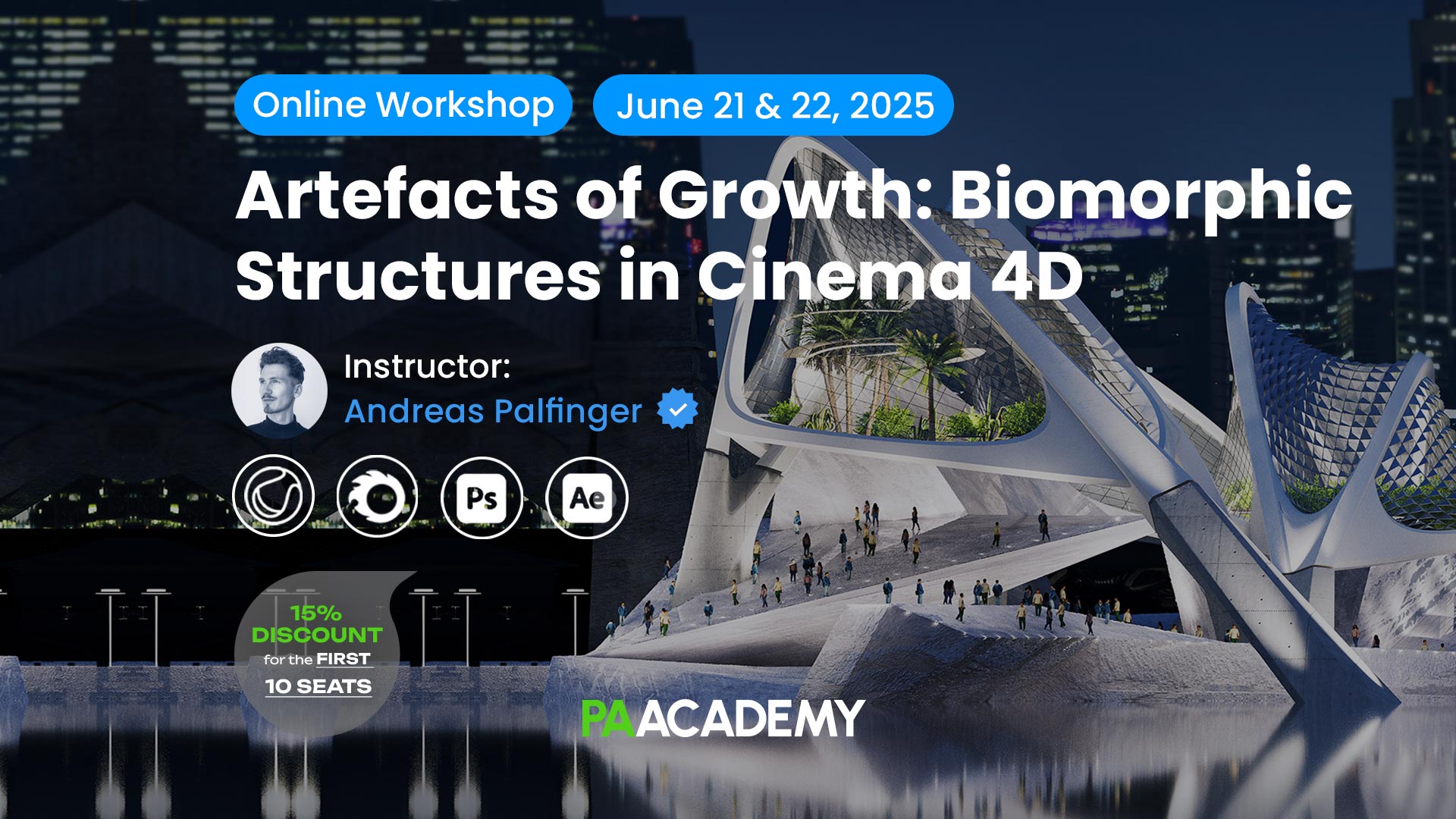




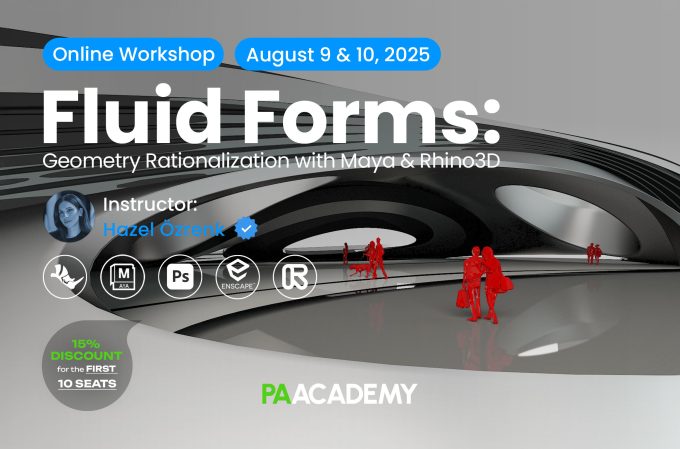
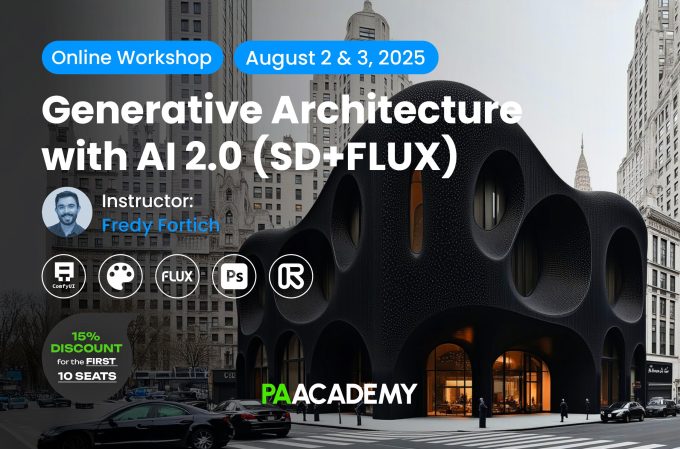




Leave a comment